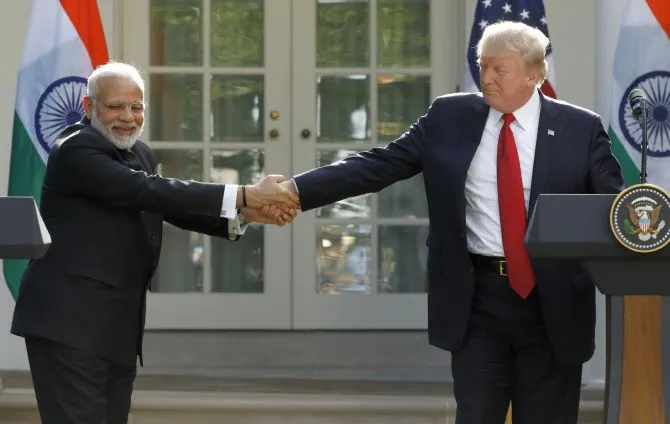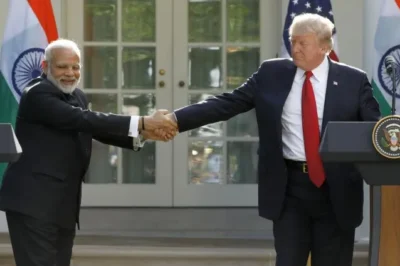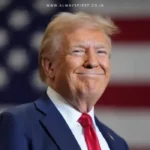
In a firm rebuttal to former U.S. President Donald Trump’s recent assertions, India has categorically denied that trade concessions were used as leverage to broker a ceasefire between India and Pakistan. Trump’s claim that he threatened to halt trade if India did not agree to de-escalate tensions was swiftly dismissed by Indian officials as baseless and misleading. The Indian Ministry of External Affairs clarified that no such discussions took place during the heightened military exchanges between the two nations.
The Context of the Ceasefire
The conflict between India and Pakistan escalated in early May 2025, following India’s military strike in Pakistan targeting militant groups allegedly responsible for a deadly attack in Indian-controlled Kashmir. Pakistan retaliated by claiming the downing of five Indian jets and launching ballistic missiles at Indian military sites. Civilian and military casualties were reported on both sides, bringing the two nuclear-armed neighbours to the brink of war. The United States, under President Trump’s administration, brokered a ceasefire, which Pakistan welcomed as a diplomatic victory. However, India downplayed international mediation, emphasizing its military success and the need for Pakistan to cease supporting terrorism.
Trump’s Controversial Statement
President Trump claimed that he had successfully mediated the ceasefire by leveraging trade concessions, stating that both India and Pakistan agreed to halt hostilities after being threatened with trade restrictions. He also proposed mediating on the Kashmir dispute, an offer India rejected, reaffirming its position that Kashmir-related issues must be resolved bilaterally without external involvement.
India’s Firm Response
India’s Ministry of External Affairs responded promptly, stating that discussions between Indian and U.S. officials during the crisis did not involve trade as a topic. The ministry emphasized that India’s foreign policy decisions are made independently and are not influenced by external pressures. This clarification underscores India’s intent to maintain the integrity of its diplomatic engagements and to reject any attempts to misrepresent the nature of its foreign relations.
The Political Implications
The controversy has sparked political debate within India. Critics of the government have accused Prime Minister Narendra Modi of conceding to American pressure, undermining India’s sovereignty. They argue that the ceasefire, while necessary to prevent further escalation, should not be portrayed as a result of foreign intervention. Supporters of the government’s stance, however, contend that the decision to halt military operations was a strategic move to avoid unnecessary conflict and loss of life, while still holding Pakistan accountable for its actions.
Conclusion
The dispute over the ceasefire’s mediation highlights the complexities of international diplomacy and the sensitivities surrounding national sovereignty. While the immediate threat of war has been averted, the underlying issues remain unresolved. India’s firm stance against external interference in its foreign policy decisions reflects its commitment to safeguarding its interests and maintaining control over its diplomatic engagements. As the situation continues to evolve, it remains to be seen how India and Pakistan will navigate their bilateral relations and address the challenges that lie ahead.








































Leave a Reply